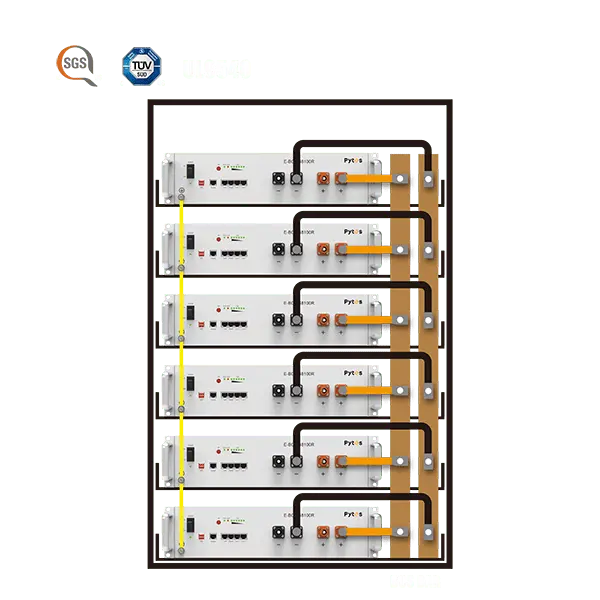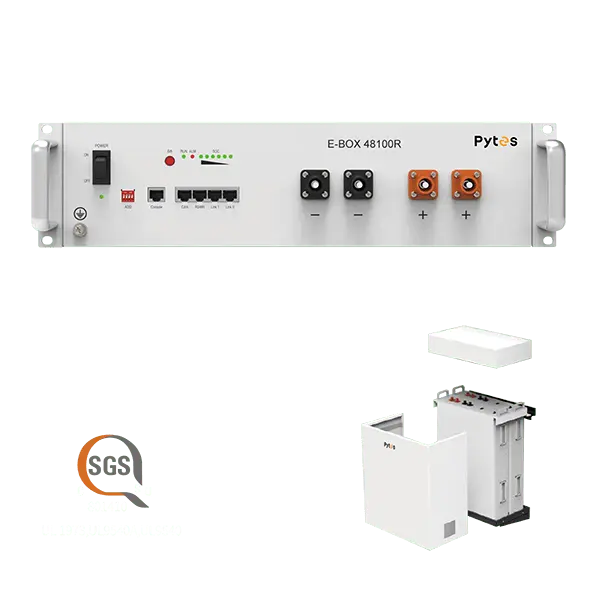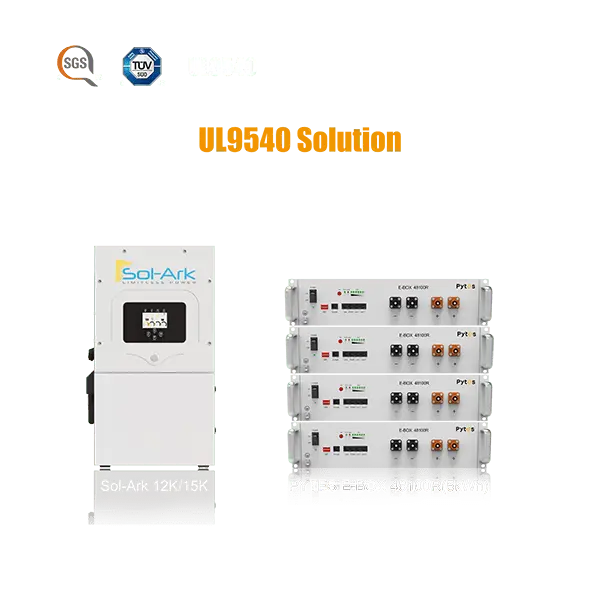Although solar panels provide clean energy and help reduce energy costs, they have two drawbacks: They only generate electricity when the sun shines, and they cannot store excess energy themselves.
Solar storage technology solves this problem and increases the efficiency of solar systems. Solar energy storage systems (Pytes E-Box-48100R) capture excess energy during the sunniest times of the day. This electricity is then stored in batteries and is ready for use at night when the solar panels are not producing energy. The batteries also provide backup power for grid -tied solar systems during power outages.
Solar energy storage involves collecting excess energy from a solar panel system and storing it in another form for later use.
Solar panels produce maximum energy during peak hours of sunlight. With a solar storage system, you don’t have to use all the electricity generated by your solar array. Storage devices store excess solar energy in the form of chemical, thermal or kinetic energy and then release it when demand peaks.
Therefore, solar + energy storage systems can balance power supply and demand and are more efficient.

All you need is an energy storage system off-grid solar system (Pytes E-Box-48100R). This is a great option for all other applications and will improve the user's system performance and provide greater energy independence.
Most homeowners and businesses that install solar systems connect their solar panels to the grid. This allows them to still draw power when the solar panels are not working (i.e. at night or during periods of low sunlight). Grid connection also enables users to send excess generation back to the utility company to receive credits and lower electricity bills (net metering billing).
But grid-tied systems present some challenges to solar system owners:
The solar system will not work during a power outage (unless paired with solar cells), and
They only generate electricity when sunlight hits them.
These are the two main reasons why most people invest in solar battery systems.
Other reasons to consider a solar storage system include:
1.Completely Off the Grid: No need to be tied to your local utility company when excess power from solar panels can be stored. Off-grid systems use solar energy from the sun during the day and batteries at night or when there is no sunlight.
2.Enjoy power flexibility: Since solar power generation depends on weather factors, temperature and obstructions, users do not enjoy a stable power supply. But with energy storage, users can have backup power during power outages or adverse weather conditions.
3.Power storage saves money: Grid-connected systems face rising power costs, depending on energy demand and supply. Being self-sufficient saves money on electricity bills.
4.Reduced Carbon Footprint: Solar storage systems provide a continuous supply of clean energy and greatly reduce dependence on fossil fuels.
Lead-acid batteries are the most common battery type because they are cheap. But they are larger and have low depth of discharge (DoD) and shorter lifespan.
Lithium-ion batteries such as Pytes E-Box-48100R and Pytes V5° are lighter and more compact than lead-acid batteries. Their DoD is also higher and they are becoming increasingly popular due to their higher efficiency and longer shelf life.
Nickel-cadmium batteries are small, compact, and durable. They also operate over a wide temperature range, making them practical in extreme climates. But cadmium is toxic, making it unsafe to handle.

Pytes E-Box-48100R is an advanced solar battery storage system product designed, developed and manufactured by Pytes. It can be used for off-grid, backup, zero output, time-sharing, demand response, peak shaving, virtual scenes such as power plants.
1.Advantages of Pytes E-Box-48100R
One of the advantages of the E-Box-48100R is that it is compatible with most of the leading inverters on the market, one of which is the Sol-Ark Residential Inverter. No matter the make or model of your inverter, you can seamlessly integrate this solar battery storage system into your existing setup. This versatility comes in handy for homeowners looking to upgrade their energy storage capabilities without having to replace their entire solar system.
2.Benefits of Pytes E-Box-48100R
The main benefit of the Pytes E-Box-48100R is that it enables homeowners to store energy generated from renewable sources. By capturing and storing this energy, homeowners can significantly reduce their reliance on the grid, saving costs and enabling a more sustainable lifestyle. The solar cell storage system is rated for over 6,000 cycles at 90% depth of discharge (DOD) and 80% retention at 25°C for long life.
3. Pytes E-Box-48100R Wide Range of Applications
The applications of the Pytes E-Box-48100R are wide and varied. It can be used in off-grid installations to provide energy storage in remote areas or during power outages. Additionally, it is an excellent backup solution ensuring uninterrupted power during critical moments. The system also supports zero sockets, time-of-use, demand response, peak shaving and virtual power plant applications, giving homeowners greater control over energy use and costs.
In addition, the Pytes E-Box-48100R is compact, flexible and easy to install, thinner than most 5kWh server rack batteries, can be installed vertically and horizontally, comes with brackets (E-Box-48100R Brackets) and battery housing, wall-mounted,floor-standing or server rack-mounted (R-BOX-B, R-BOX-IP64, R-BOX-OC(IV)). It is suitable for powering household appliances, electrical systems and uninterruptible power supply units. Market-leading performance and safety achieved through a state-of-the-art battery pack design, making it ideal for residential and commercial applications.

The cost of a solar storage system depends largely on several factors.
The installation cost of a solar storage system is calculated in dollars per kilowatt hour ($/kWh).
The following factors determine how much you will spend setting up a solar storage system:
1.Capacity of solar storage systems: It is relatively cheap to install energy storage systems with smaller energy capacities. For example, a 5kWh solar battery costs $2,000 to $5,000, while a 25kWh battery costs about $10,000 to $25,000.
2.Sizing of solar plus storage system: The energy needs of the user determine the size of the system to be installed, which affects upfront and maintenance costs. As a result, residential solar + storage systems are generally less expensive than commercial systems because they are smaller. However, large-scale commercial projects can benefit from economies of scale and cost less per kilowatt hour of capacity.
3.Installation Time: Users will save money if they pair a solar storage system with an initial solar installation rather than one that is set up later.
4.Location: Where a solar storage system is installed determines its cost. For example, systems installed in remote or off-grid areas are expensive.
What Is The Lifespan of A Home Backup Battery